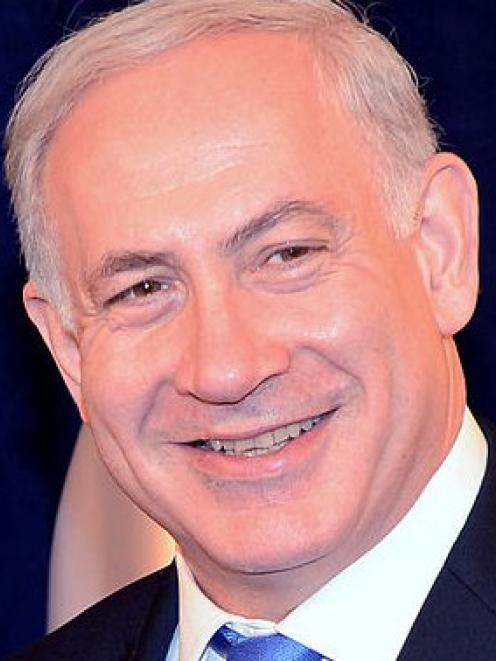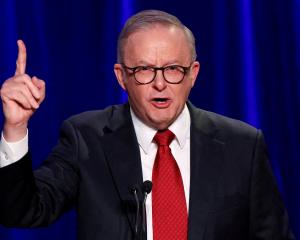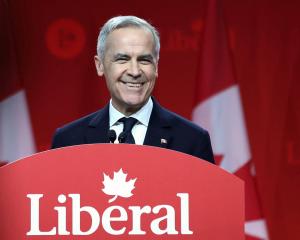
At the same time, Zionist Union chief Isaac Herzog, the main challenger to Mr Netanyahu, disputed the victory, saying everything was still open.
The election is make or break for Mr Netanyahu, who ramped up his anti-Palestinian rhetoric in the last few days of a tight and bitter campaign - something which has become a mark of elections globally.
''Reality does not take a break,'' he said in a speech to supporters after two television exit polls gave Likud a narrow lead over its centre-left challenger in the ballot.
Elections analysts predicted one of the largest voter turnouts since 1999 in the elections, with up to 80% of eligible Israelis expected to vote.
On the eve of the polls, Mr Netanyahu unequivocally ruled out the establishment of a Palestinian state and vowed to strengthen construction of settlements in occupied east Jerusalem should he be re-elected.
Those comments reinforced his hardening message of recent days and confirmed the final abandonment of his previous lukewarm commitment to a two-state solution.
Mr Netanyahu went into the campaign, called in early December, as the clear favourite to win.
He struggled in the face of an unexpectedly strong challenge from Mr Herzog, who campaigned largely on the social and economic issues Israelis made clear mattered most to them.
Opponents of the prime minister said laws he introduced were intolerant, anti-democratic and incited ethnic hatred. Israel's minorities had been made second-class citizens, left-wing newspapers editorialised.
Crucially, it seems younger voters flocked to Mr Netanyahu's cause in the last few days of the campaign.
It seems increasingly likely Mr Netanyahu will be able to form a government with a group of right-wing-leaning parties, but his powers may be somewhat diminished by the inclusion of Moshe Khalon, a popular former Likud minister who broke away - in part out of frustration with Mr Netanyahu - to form the Kulanu party.
Exit polls showed Kulanu getting nine or 10 seats. Mr Khalon, who emphasised corruption and high housing costs in the lead-up to the election, remained unaligned during the campaign.
One thing is clear, however: the call by Israeli President Reuven Rivlin for Likud and Zionist Union to form a national unity government will go unheeded.
The White House is taking a wait-and-see approach to the Israeli election.
A press statement said US President Barack Obama remains committed to working closely with the winner to cement and further deepen the strong relationship between the United States and Israel.
The president is confident he can do that with whomever the Israeli people choose.
The conciliatory public stand contrasts sharply with private frustrations in the West Wing, where Mr Obama and aides are reportedly angry about Mr Netanyahu's decision to accept a Republican invitation to deliver a speech about Iran's nuclear programme to Congress without discussing it with American officials.
The diplomatic spat deepened the rift between Messrs Netanyahu and Obama that has developed over the years, especially about the issue of Mr Netanyahu's pursuit of settlement construction.
The Israeli leader's admission in the last days of the campaign he will never allow the establishment of a Palestinian state will become another irritant.
Israel has few friends in the international world and cannot afford to get offside with the US.
It has demanded a place in directing world affairs in recent decades, but entrenched views on any issue may further isolate the nation in times of increasing uncertainty in the Middle East.













